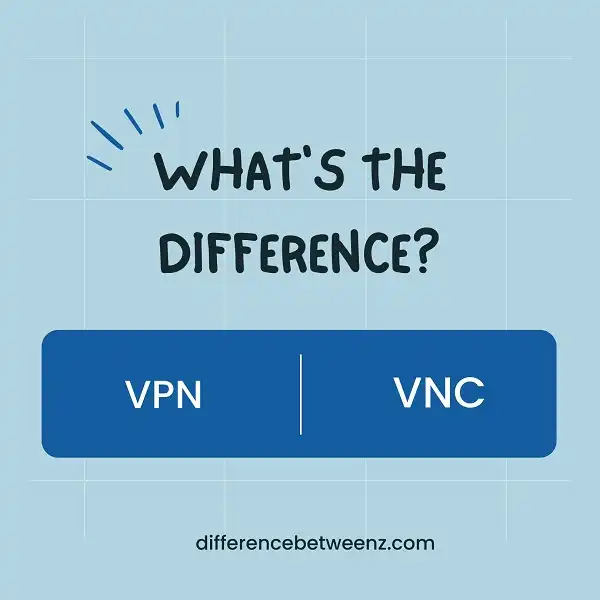Whether you are working from home or remotely accessing your office computer, there may come a time when you need to use a virtual private network (VPN) or virtual network computing (VNC) connection. But what is the difference between VPN and VNC? This blog post will explain the key differences between VPN and VNC connections, and help you decide which one is best for your needs.
What is VPN?
A VPN, or Virtual Private Network, is a type of software that allows users to securely connect to a private network from a remote location. VPNs are often used by businesses to allow employees to securely connect to the company network from outside the office. VPNs can also be used by individuals to protect their online privacy. When using a VPN, all data that is sent between the user’s device and the VPN server is encrypted, making it difficult for anyone to intercept and read the data. VPNs are an effective way to improve security and privacy when using the internet.
What is VNC?
VNC is software that allows for remote access to another computer. VNC stands for “Virtual Network Connection”. VNC is used in a variety of situations, such as when someone needs to provide tech support to a user who is not physically present. VNC is also used by businesses to allow employees to work from home. VNC software usually requires installation on both the remote computer and the local computer. VNC is typically used with a graphical user interface (GUI). Once VNC is installed and running, the user can view the remote desktop and control it as if they were sitting in front of it. There are many different VNC software options available, such as TightVNC, UltraVNC, and RealVNC. VNC is a powerful tool that can be used in a variety of situations.
Difference between VPN and VNC
VPN and VNC are two popular remote desktop protocols. VPN stands for Virtual Private Network and VNC stands for Virtual Network Computing. VPN is a great choice if you need to securely connect to another network, as it encrypts all data that passes through the connection. VNC is a good choice if you need to access a graphical interface on another machine, as it provides a high-quality display of the remote desktop. VPN is typically used to connect to corporate networks, while VNC is often used to remotely control computers or access files on home networks.
Conclusion
Although VPN and VNC offer similar services, there are some distinct differences between the two. VPN is more secure because it creates an encrypted tunnel for all of your traffic, while VNC does not have this feature. Additionally, VPN can be used to connect to servers in other countries, whereas VNC is limited to computers on the same network. If you are looking for a way to securely connect to your home or office computer from another location, then VPN is the better option.


